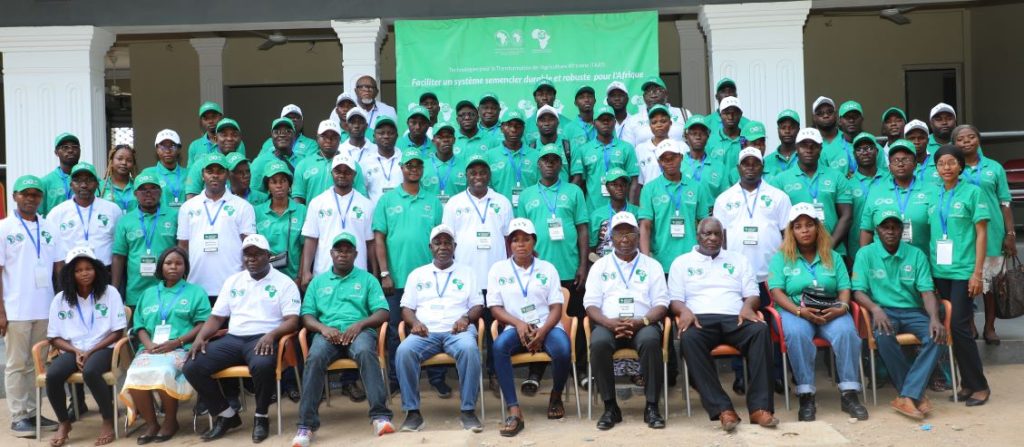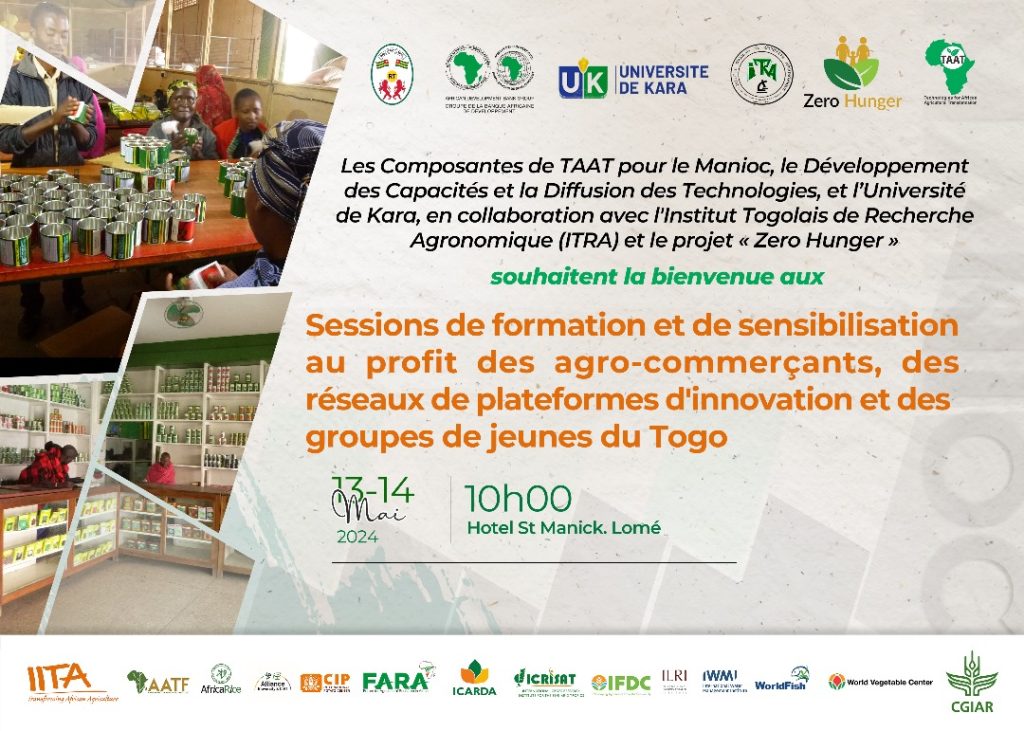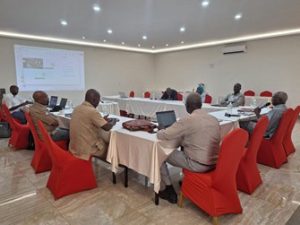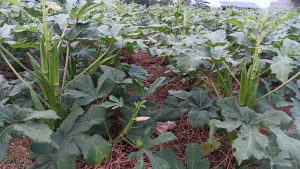Togo: TAAT holds training and sensitisation sessions for Agrodealers, Youths and IP Networks

The mobilisation was massive for this objective. Participants, who comprised agro-dealers, distributors, researchers, Innovation Platform (IP) networks, youths, seed producers, and farmers, were drawn from Togo, Benin, D.R. Congo, and Nigeria.
They all converged in the conference room of the Gloria Hotel in Lomé, the Togolese capital, for the Training and Sensitization workshop for Agro-dealers, Innovation Platform Networks and Youth Groups In the country.
Organised by Technologies for African Agricultural Transformation (TAAT) under the framework of the Transition Support Facility (TSF), many partners came together to drive the workshop to success. These include the University of Kara, the Togolese Institute of Agronomic Research (ITRA), the International Institute of Tropical Agriculture (IITA), the Forum for Agricultural Research in Africa (FARA) and the Zero Hunger project.
The opening ceremony was temperate. Two interventions marked the start of this workshop on Monday, May 13, 2024. Worthy of note is that of Dr Adebayo Abass, the TAAT Cassava Compact Leader, who used the opportunity to go down memory lane, reminding his audience that TAAT had been in Togo since 2018 following a request by the Togolese President, Mr Faure Gnassingbe, who was fascinated by the giant strides recorded in the intensification of cassava production by IITA .
This was the beginning of cooperation between TAAT and Togo. The return to Togo several years later was no coincidence for TAAT and its leaders.

For Dr Abass, “it is with a view to bringing together agricultural technology stakeholders with agro-input dealers and suppliers to strategise for food systems transformation.” There was also discussion on the use of agro-chemicals and phytosanitary products.” Hence the presence at this meeting of agro-dealers and traders of phytosanitary products.
“The challenge at this level is great because most input dealers, representing points of sale of agro-chemical products, mainly in rural areas, lack knowledge of these products, the most useful for managing cassava production. It is then necessary to train traders and traders of agro-chemical products in good agronomic practices, including the management of weeds which hamper the development of cassava. Everyone will be registered on Cassava Business Connector for greater efficiency in the agricultural sector in Africa,” Dr Abass added.
Lomé: a meeting of exchanges and sharing
The method chosen is classic and allowed around fifty participants to participate actively in the exchanges in a role play where each communication follows a series of discussions supported by questions and answers. Seven topical issues addressed on the first day are: Varieties of cassava with high nutritional value popularized, promotion strategies in Togo; New opportunities in the cassava seed sector through investments in SAH (Semi- Autotrophic Hydroponics) technology; Agricultural inputs, including pesticide regulations and safety precautions in Togo; Review of the state of input supply in Togo; Safety precautions for the use of pesticides in cassava cultivation; Principles of weed management, mode of action of herbicides; Business opportunities for youth in the cassava value chain, including pesticide business opportunities; and then the development of a good mindset for a prosperous agribusiness.
The second day was especially marked by the creation of the working groups. Around ten participants per group were invited to reflect on and express their opinions on some concerns related to their sector of activity.
The questions bordered on how to identify the systems that govern cassava-based food production systems? How can they influence systems? How do systems influence operations? What can they do to have a harmonious coexistence with different systems? An exercise to test what everyone had learnt during their meetings was thereafter conducted.
The Lomé outcome
All’s well that ends well, and it was with great satisfaction that the Lomé workshop ended on May 14, 2024. Everyone who spoke at the closing ceremony recognized this. In terms of results, this meeting was a success because each participant was strengthened.
Beginning with youth entrepreneurs. They were equipped with entrepreneurship techniques and the development of a business plan. Producers who did not know the 8 varieties of cassava from TAAT became aware and that these varieties are available at the level of agronomic research and at their disposal.
As for agro-dealers, they sufficiently understand their role in the management and use of phytosanitary products, in short, as a Togolese official from the organization Lomé says. The tree will grow very quickly to bear fruit.
Recent Stories
Related Stories
- Sierra Leone: TAAT holds training and sensitisation sessions for Agrodealers, Youths and IP Networks
- TAAT gets $27 million boost for emergency production of 120 million tonnes of food
- TAAT eyes $2.8bn additional food production for Africa
- Taking cassava to a new frontier
- Uganda: TAAT showcases improved and resilient soybean varieties





